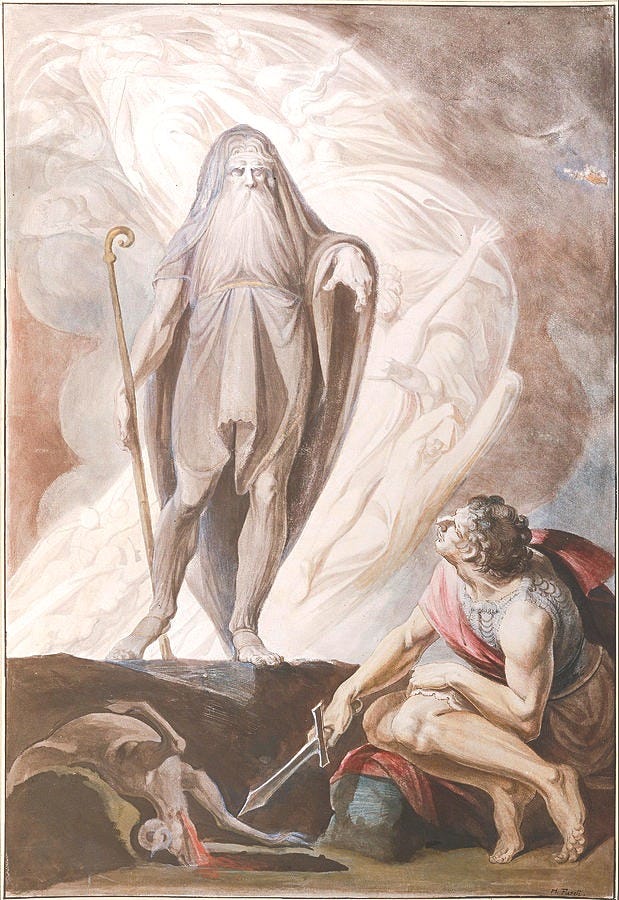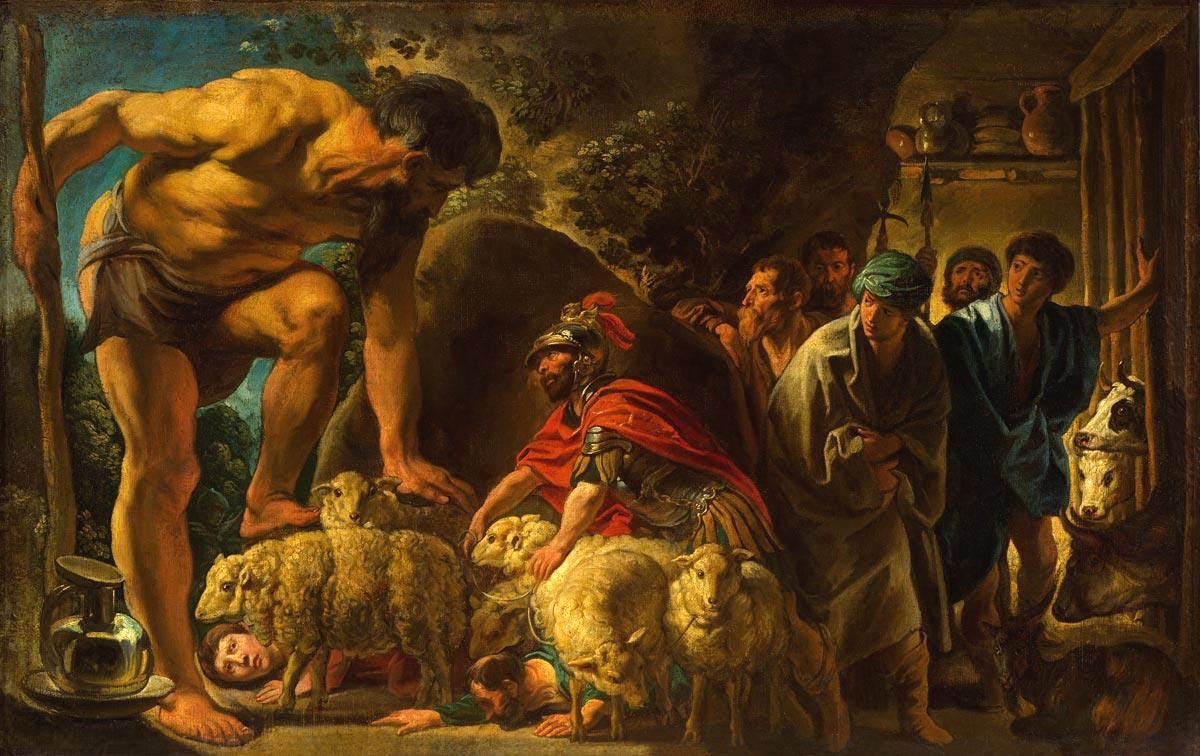The Hidden Hero of Homer’s Odyssey
What most readers miss about Homer’s masterpiece
Homer’s Odyssey triumphs as the archetypal hero’s journey. It follows Odysseus — hero of the Trojan War — embarking on a legendary 10 year journey home filled with the deadliest of snares. He must contend with gods, beasts, nature, and a wicked cohort of suitors who yearn to steal his wife, treasures, and kingdom.
Yet as riveting as this adventure is, it would be all for nothing without a seemingly minor side character.
He’s long perplexed readers, and many question if he belongs in the story at all. The irony, however, is that it’s precisely his presence that makes The Odyssey a work of genius. It transforms the narrative from a war veteran’s tale of adventure, into a king’s journey of building an immortal legacy — one that restores virtue, beauty, and grace to a fallen world.
Without him, The Odyssey would have faded into just another ancient myth of survival and return, and Odysseus’ journey rendered futile.
Here then, is the hidden hero of Homer’s Odyssey, how he unlocks the full genius of the story, and what he teaches you about crafting a legacy that lasts.
Reminder:
Subscribe to support my mission of restoring Truth, Beauty, Goodness, and God to the heart of the West by subscribing!
Trouble at Home
First of all, why does it take Odysseus 10 years to get home?
After the Trojan War, things looked bright for the war hero. His ship was rich with plunder and his journey home was clear. Unfortunately, he was guilty of the great killer of all great men — prideful impiety.
Specifically, Odysseus wounded a cyclops and boasted about how great and glorious of a man he was. The problem is, the cyclops was the kin of Poseidon. The beast prayed for Odysseus’ doom, and Poseidon interceded, vowing to destroy Odysseus. The result — 10 years of wandering at sea, countless trials, tribulations, and near death experiences. Only by the protection of Zeus does Odysseus survive.
But while Odysseus is wrestling with destiny, fate, and the divine, there’s an interesting side plot going on at his home in Ithaca…
Odysseus has been gone from Ithaca for 20 years. He’s believed dead, and suitors are vying for his wife Penelope and his throne. Worse, they’re abusing the ancient code of hospitality — they’re consuming Odysseus’ cattle, livestock, and fortune, and refuse to leave until Penelope marries one. And it’s here in this humble abode where we encounter the story’s unsung hero:
Odysseus’ son, Telemachus.
His story functions as the quintessential coming of age story — teaching young men how to become virtuous rulers who restore order to a fallen world.
Yet Telemachus’ story is about more than manhood. In his simple narrative, we’ll see birthed the very flame that brings life, hope, and glory to human civilization.
Answering the Heavenly Call
We first find Telemachus as an immature and undeveloped 20 year old. He despairs because he’s too weak to stand up to the suitors, who laugh at his empty threats. Thankfully, in his darkest hour, the goddess Athena comes to his aid.
She appears disguised as an old man and gives him strange advice:
“Leave to the foreign lands of Pylos and Sparta.
Inquire whether your father is still alive.”
Why wouldn’t Athena kill the suitors herself? Or why wouldn’t she just train Telemachus to become a killer?
Strange as it sounds, Athena’s instructions are archetypal:
When Providence calls the young boy to become a man — a hero — he must first leave his home and travel to foreign lands. Think Frodo leaving the Shire, Luke Skywalker leaving the farm, or even Biblical Abraham called by God out of his Father’s house.
Manhood is made by wrestling with God in the world of the strange and uncomfortable, and Telemachus does just this. He braves the high seas, outsmarts death traps plotted by the suitors, and is taken in at the kingly courts of Nestor and Menelaus — Odysseus’ dear friends.
In other words, Telemachus’ side quest is the blueprint of man learning true piety. Follow the call of the divine with faith, and you shall find what you need.
In the case of Telemachus, he learns his Father isn’t dead, but more important — he learns fortitude, courage, rhetoric, temperance — qualities not of a blind killer, but a ruler capable of shepherding his flock.
Finally, Telemachus returns to Ithaca as a grown, prudent, and battle-ready young man, and he reunites with his father.
What follows is not just a bloody and brutal confrontation with the suitors, but a central revelation — one that transforms this tale from an adventure story, to a foundational narrative that taught the western world what it means to leave behind a true and lasting legacy.





